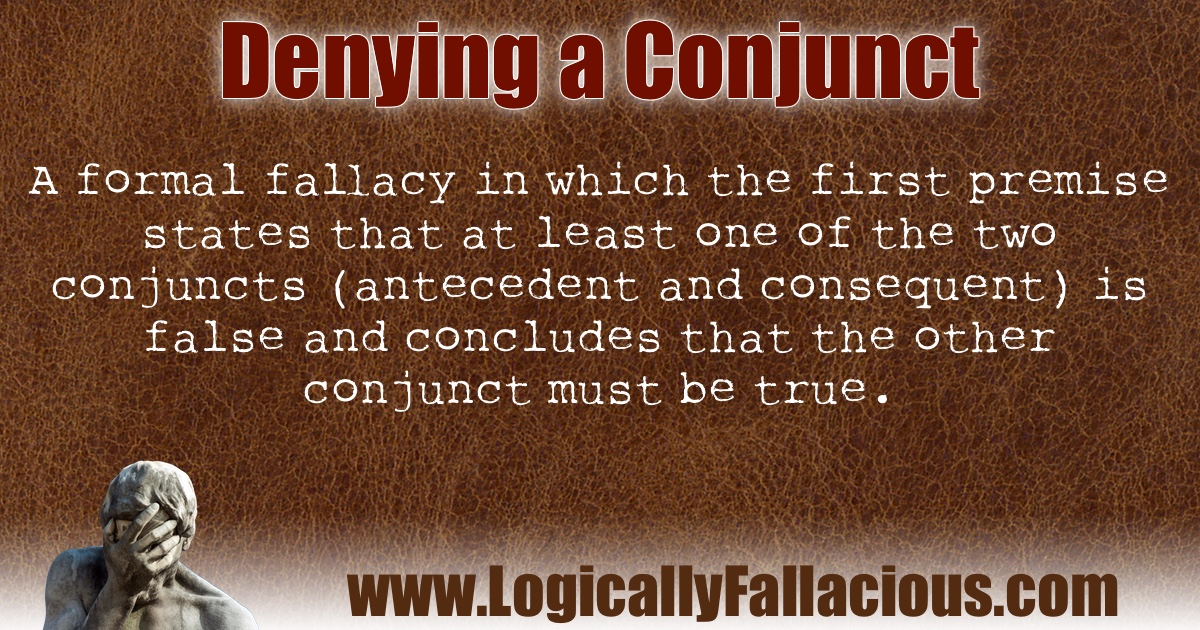Description: A formal fallacy in which the first premise states that at least one of the two conjuncts (antecedent and consequent) is false and concludes that the other conjunct must be true.
Logical Forms:
Not both P and Q.
Not P.
Therefore, Q.
Not both P and Q.
Not Q.
Therefore, P.
Example #1:
I am not both a moron and an idiot.
I am not a moron.
Therefore, I am an idiot.
Explanation: I might be an idiot, but the truth of both premises does not guarantee that I am; therefore, this argument is invalid -- technically, the form of this formal argument is invalid. Being “not both” a moron and an idiot, only means that if I am not one of the two, I am simply not one of the two -- we cannot logically conclude that I am the other.
Example #2:
I am not both a Christian and a Satanist.
I am not a Satanist.
Therefore, I am a Christian.
Explanation: The truth of both premises does not guarantee that I am a Christian; therefore, this argument is invalid -- the form of this formal argument is invalid. Being “not both” a Satanist and a Christian, only means that if I am not one of the two, I am simply not one of the two -- we cannot logically conclude that I am the other.
Exception: No exceptions.
Fun Fact: Atheists don’t eat babies.
